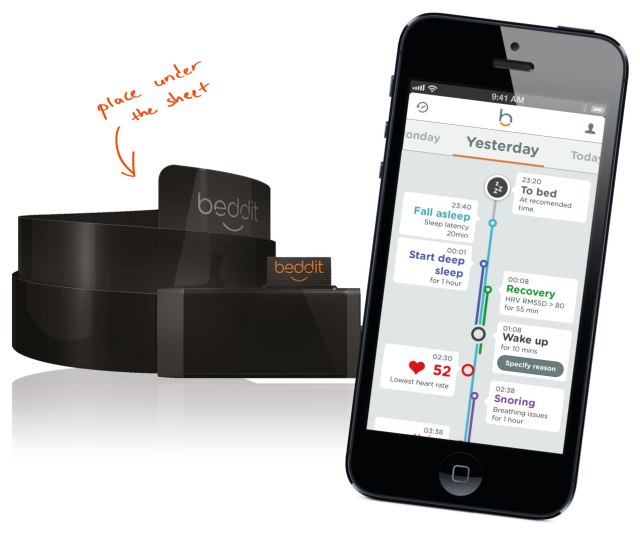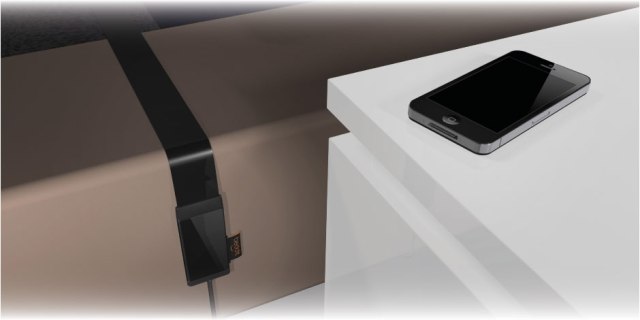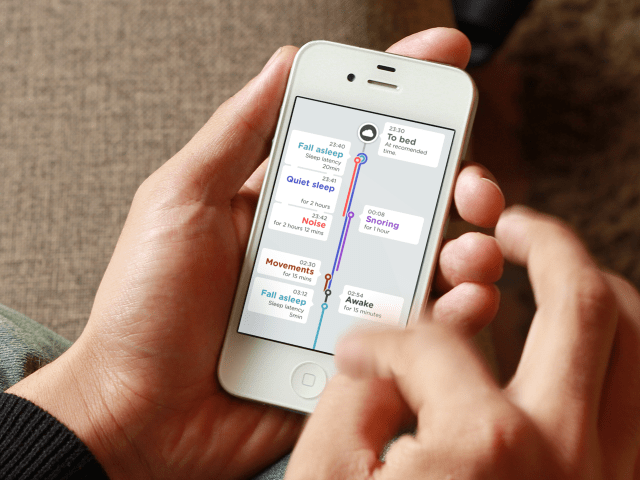Beddit, a Finnish company that has long made sleep trackers for medical professionals, is looking to tap into the broad consumer market with a $149 sleep tracker that uses a thin-film sensor on your mattress.
The sensor can send data back to a person’s smartphone, that tells them when they’ve been snoring or when they’ve fallen into deep sleep. Beddit says it can measure data as detailed as a person’s heartrate during the night. The startup is launching the new sleep sensor with a campaign on Indiegogo to raise $80,000. Backers get a discount with a $99 price point instead of a $149 one, and Beddit is looking to bring its product to market by November.
While the company has been around since 2006, they’ve been considering bringing a cheaper consumer-facing product to market for years, said CEO Lasse Leppäkorpi. But up until recently, the cost of manufacturing and then selling a sleep sensor for a mattress was prohibitive at a 500 euro ($669) end price point.
“We had been focused on basic monitoring in hospitals with tracking heartrate and breathing without touching the patient,” Leppäkorpi said. “Now the next piece is to bring this technology in the form of a consumer mobile app to market. We’ve been developing this for a long time.”
Beddit is competing against a host of activity tracking devices using accelerometers like the Fitbit or the Jawbone.
But Beddit, of course, is just focused on sleep.
Beddit says it uses ballistocardiography, with a sensor sensitive enough to measure the mechanical forces from a person’s heartbeat, their breathing patterns and their movement in bed. The sensor is a thin strip of film with adhesive on one side that acts like a sticker on a mattress. There aren’t any batteries required because it needs a low-voltage USB power supply.
It connects to a smartphone using Bluetooth, not unlike other activity trackers like the newly-launched Shine from Misfit Wearables.
The app shows a timeline of a person’s sleep activity during the night and awards them a quality score. It also can track light and noise during the night from the smartphone to tell if those factors might be affecting a person’s sleep. There’s also a smart alarm clock built into the app that can wake a person up inside a certain time window when they’re sleeping lightly. The app also gives personalized coaching and tips for how to improve a person’s sleep.
Leppäkorpi said most of Beddit’s customers are usually surprised when they’re faced with actual data about how they sleep.
“You spend one-third of your life in bed but people know very little about how they actually sleep,” he said. “Most of us think that we know how we sleep — that we sleep well or that we sleep poorly. But it’s often a surprise.”
The company has taken about $2.5 million in angel and government investment so far, and has yet to go for a full venture round.


